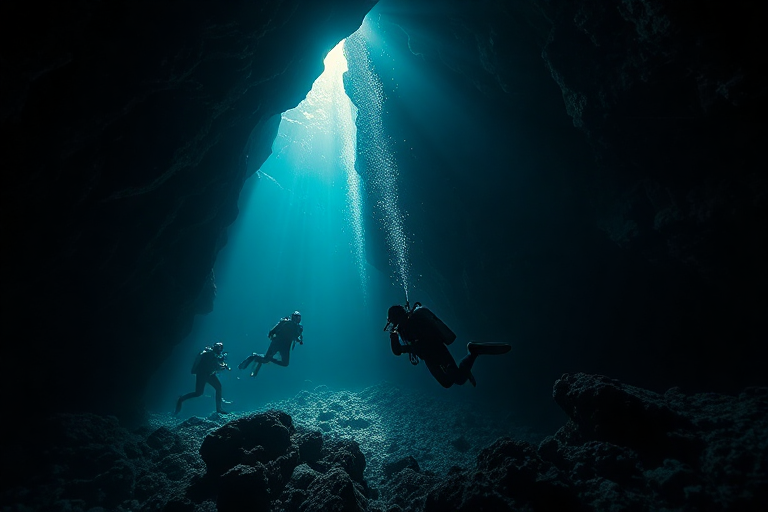
Cave diving is one of the most thrilling yet challenging forms of underwater exploration. It combines the beauty of underwater landscapes with the adrenaline of navigating through confined spaces. However, it’s not for the faint-hearted. Here are 10 essential things you need to know before taking the plunge into the world of cave diving.
1. It’s Not Just Regular Scuba Diving
Cave diving is a specialized form of scuba diving that requires advanced training and equipment. Unlike open-water diving, cave diving involves navigating through underwater caves, which can be dark, narrow, and filled with potential hazards. The environment is unforgiving, and mistakes can be fatal. Therefore, proper training and certification are non-negotiable.
2. Training is Crucial
Before you even think about cave diving, you need to undergo specialized training. Organizations like the National Association of Underwater Instructors (NAUI) and the Professional Association of Diving Instructors (PADI) offer cave diving courses. These courses cover essential skills such as buoyancy control, navigation, and emergency procedures. Without this training, you’re putting yourself and others at significant risk.
3. Equipment is Specialized
Cave diving requires specialized equipment that goes beyond the standard scuba gear. You’ll need redundant air supplies, powerful underwater lights, and reels with guideline spools. The redundancy in equipment is crucial because if something fails in a cave, you can’t just swim to the surface. Your gear is your lifeline, so investing in high-quality equipment is essential.
4. The Importance of Buoyancy Control
Buoyancy control is critical in cave diving. The confined spaces mean that even a slight miscalculation can lead to dislodging silt, which can reduce visibility to zero in seconds. Good buoyancy control helps you navigate through tight spaces without disturbing the environment, ensuring both your safety and the preservation of the cave.
5. Navigation is Key
Navigating through a cave is not like following a trail on land. Underwater caves can be a labyrinth of tunnels and chambers. Divers use guidelines to mark their path, which are essential for finding the way back. Losing your way in a cave can be deadly, so mastering navigation techniques is a must.
6. Psychological Preparedness
Cave diving is as much a mental challenge as it is a physical one. The confined spaces, darkness, and potential for isolation can be psychologically taxing. Divers need to be mentally prepared to handle stress and remain calm in emergencies. Panic is your worst enemy in a cave.
7. Environmental Awareness
Cave ecosystems are fragile and can be easily damaged by careless divers. It’s essential to be aware of your surroundings and avoid touching or disturbing the cave formations. Many caves are protected areas, and divers have a responsibility to preserve these unique environments for future generations.
8. Team Diving is Essential
Cave diving is not a solo activity. You should always dive with a team, and each member should be equally trained and equipped. Team diving ensures that there’s always someone to assist in case of an emergency. Communication is also crucial, and divers often use hand signals or specialized underwater communication devices.
9. Emergency Procedures
Knowing what to do in an emergency can mean the difference between life and death. Cave divers are trained in various emergency procedures, such as air-sharing, lost line drills, and dealing with equipment failures. Regular practice of these procedures is essential to ensure that you can react quickly and effectively in a crisis.
10. Respect the Risks
Cave diving is inherently risky, and even experienced divers can encounter unexpected challenges. It’s essential to respect the risks and never push beyond your limits. Always plan your dives carefully, and be prepared to abort if conditions are not ideal. Safety should always be your top priority.
In conclusion, cave diving is an exhilarating activity that offers a unique way to explore the underwater world. However, it requires specialized training, equipment, and a deep respect for the risks involved. By understanding these 10 essential aspects, you can better prepare yourself for the challenges and rewards of cave diving.
Leave a Reply